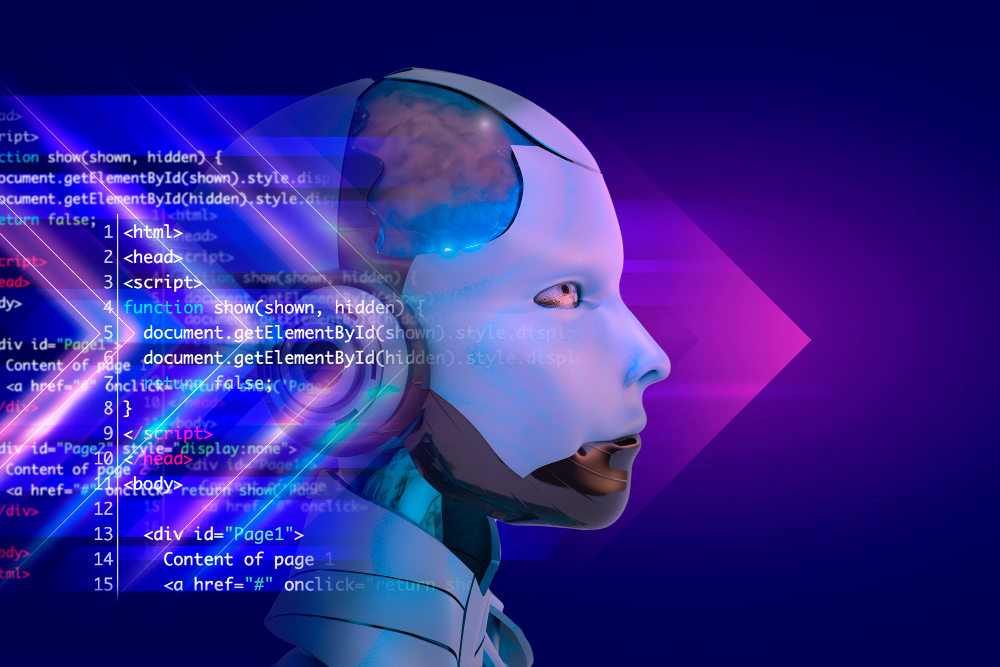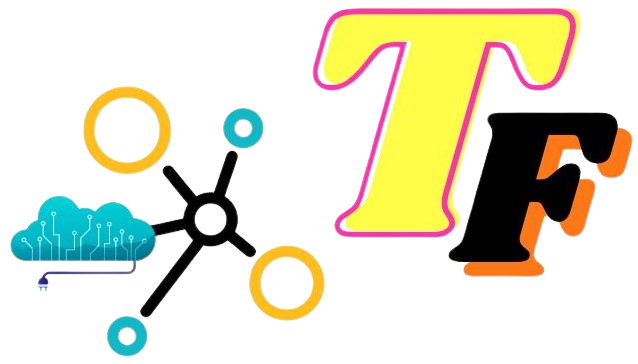Table of Contents
Introduction of AI Technology:
AI (Artificial intelligence) Technology, is like having a smart assistant in the digital world which imagine your computer or phone being really smart and knowing what you need before you even ask. AI is can do every tasks or activity. It can understand your voice and talk back to you. Think about talking or asking Alexa for help – that’s AI will in action. AI word has recently become more popular in the world of technology. It may be just like as scientific program but artificial intelligence (AI) is real and changing the way of live, work, and connect with the world around us. So look at the wonderful world of AI technology and see what will the excitement in future about this. These AI are ready to work that would normally need human intelligence, such as learning from experience, identifying patterns, solving problems and making decisions.
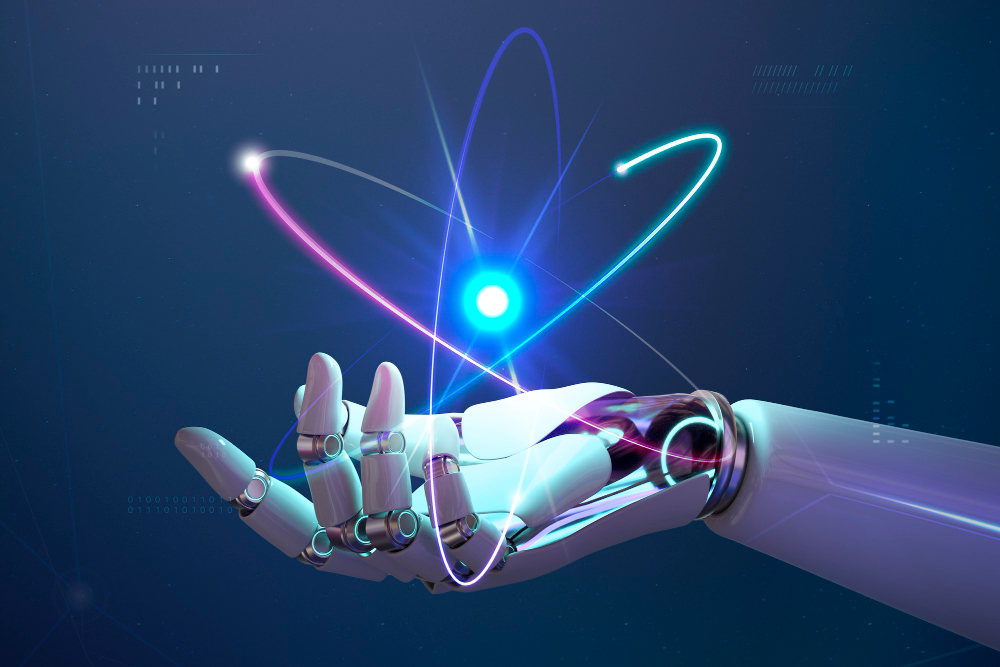
Artificial intelligence is a core system, refers to machines or computer systems that are capable of mimic as human-like intelligence and behavior. In opposite to traditional computer programs, which have to stick to hard instructions, AI systems may adapt and learn on their own. AI is also able to drive vehicles, playing games and in medical professionals it decides general health issues. Some robots are powered by AI too. AI learns from lots and lots of data. It’s like teaching a pet new tricks, but instead of treats, AI learns from information. Although AI is very intelligence, it’s important that it be used in a safe and proper manner. In that we have to thoughts on this, that the AI is impacting on our privacy, employment and general life. So, from next time you ask your device a question or play a game against a computer, remember there’s a bit of AI magic happening behind the scenes.
When you wish to tag your friends in pictures on social media, AI can also recognize objects in pictures and videos. But AI is capable of far more than that. AI is able to play games and defeating to human champions. It’s also the magic behind self-driving cars, these cars use AI to navigate the roads and avoid obstacles. Also it used at scientists and physician’s department for research and development. They can analyze lots of data really quickly to find patterns and make predictions. At each and every time we need to remember that AI is particular tool, due to this we need to utilize it carefully. To ensure that AI is utilized in ways that are ethical, secure and beneficial, many people are working hard.
AI features in Everyday Life: Transforming Our Homes and Devices
• Virtual Personal Assistants :
AI assistants basically used on the basis of voice commands such as Amazon Alexa and Apple Siri have become important in our homes. Natural Language Processing and machine learning methods are used by these intelligent digital assistants for performing activities like creating reminders, answering queries and managing smart devices. These AI assistants fit easily into our daily routines, simplify activities and saving the time and effort of human. Also they used for creating shopping lists, managing schedules, playing music and even controlling our house lighting.
• Smart Homes and IoT (Internet of Things) :
AI assistants basically used on the basis of voice commands such as Amazon Alexa and Apple Siri have become important in our homes. IoT (Internet of Things) is basically used to connect multiple devices to each other over the internet and which made more faster due to 5G technology. Natural Language Processing and machine learning methods are used by these intelligent digital assistants for performing activities like creating reminders, answering queries and managing smart devices. These AI assistants fit easily into our daily routines, simplify activities and saving the time and effort of human. Also they used for creating shopping lists, managing schedules, playing music and even controlling our house lighting.
• Personalized Entertainment :
Web streaming companies like Netflix and Spotify, for their employ AI algorithms to produce personalized suggestions and personalized content for their subscribers. These services is delivering carefully to the selected group of movies, TV series, songs and apps that fit with our likes and preferences by evaluating our viewing and listening behaviors. This types of personalization improves our entertainment experience by providing us to latest content and performers that we might not have discovered otherwise.
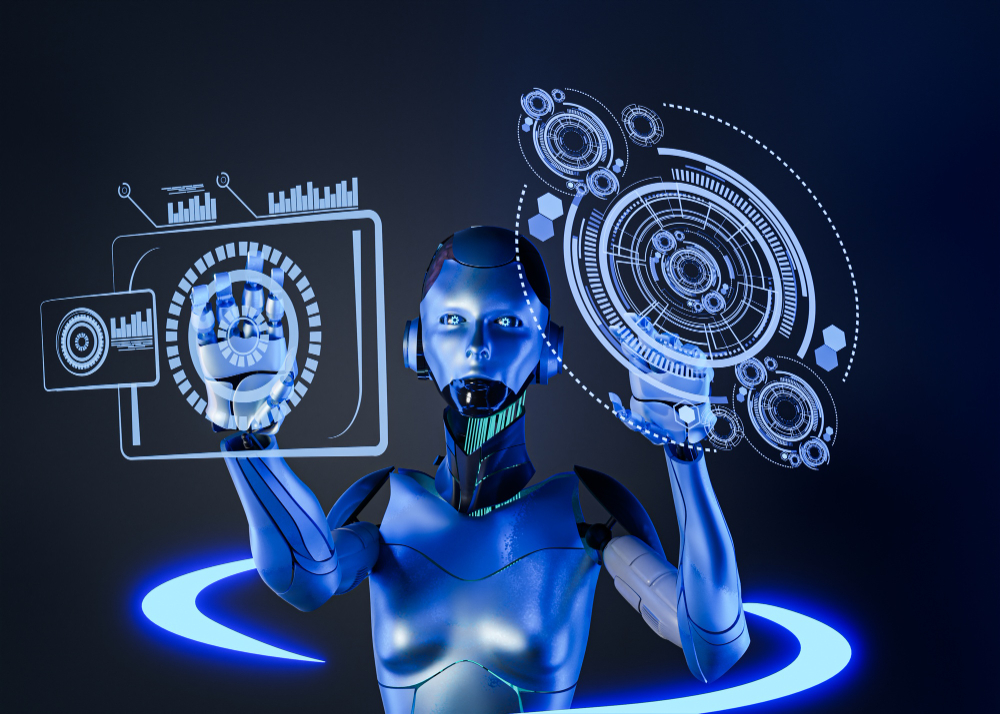
AI in Healthcare:
• Disease Diagnosis and Treatment :
AI technology has changed the healthcare business, by supporting in disease detection and treatment. Medical imaging analysis enabled by AI to discover problems, assisting healthcare practitioners in making more accurate and efficient diagnosis. AI-enabled systems detect small changes in medical images that human observers can miss by deep learning and pattern recognition. AI opens up the possibility of precision medicine, in which treatment programs are modified to individual patients based on their genetic makeup, lifestyle, and medical history. This specific strategy has the potential to significantly improve patient outcomes while avoiding negative effects.
• Virtual Health Assistants :
Virtual health assistants are based on AI technology and used for transforming patient care and increasing access to medical advice. These intelligent systems use Natural Language Processing and Machine Learning algorithms to provide individualized medical advice, answer inquiries and provide patients with remote support. Virtual health assistants improve patient experiences by providing fast responses and recommendations, they allow for remote monitoring of patients’ health problems. These AI-powered solutions can alert healthcare personnel to any alarming changes in patient data, resulting in preventive treatments and improved overall patient care.
• Drug Discovery and Development :
AI algorithms has important role in speeding up the drug discovery and development process. AI-powered algorithms can find possible medication with greater precision and efficiency than traditional approaches by evaluating huge amounts of data such as genetic information, chemical qualities, and clinical trial results. This development in AI technology has a chance to lead to more efficient and cost-effective drug development, leading to breakthrough treatments for a large range of diseases. AI is likely to affect the future of medical developments and transform the healthcare landscape as it develops.
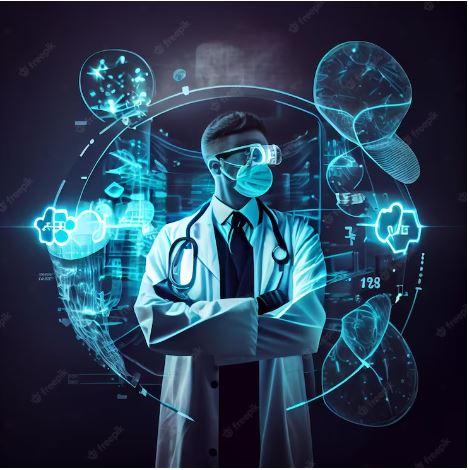
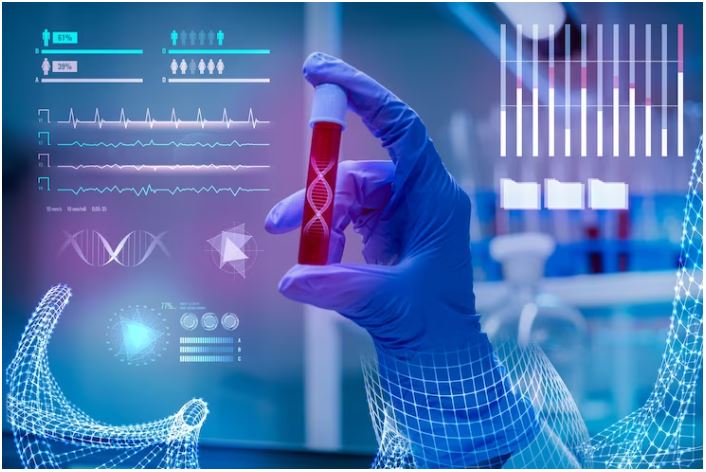
AI in Automation and Robotics :
Through the automation and robots, AI is improving operations and increasing efficiency in a variety of commercial areas. AI-powered machines monitor real-time data to change production processes, reduce errors, and increase efficiency. While automation provides advantages in terms of speed and accuracy, organizations must ensure a smooth transition for employees by implementing developing and training initiatives as AI systems improve.
AI technology category:
• Machine Learning:
Machine learning is an advanced branch of artificial intelligence that targets on creating algorithms and models that can learn from data and make exact conclusions. It involves to check for mathematical models and computational methods that permit computers to understand patterns and make data-driven decisions without the need for clear programming. This involves teaching computers to take knowledge from data and develop as per updated time without being programmed in advance. This system is able to identify new topics, new trends, generate assumptions, and take data driven decisions. Machine learning is a subtype of AI in which a computer system learns from data. It’s similar to teaching a machine to improve its performance over time without clear programming it for every possible case.
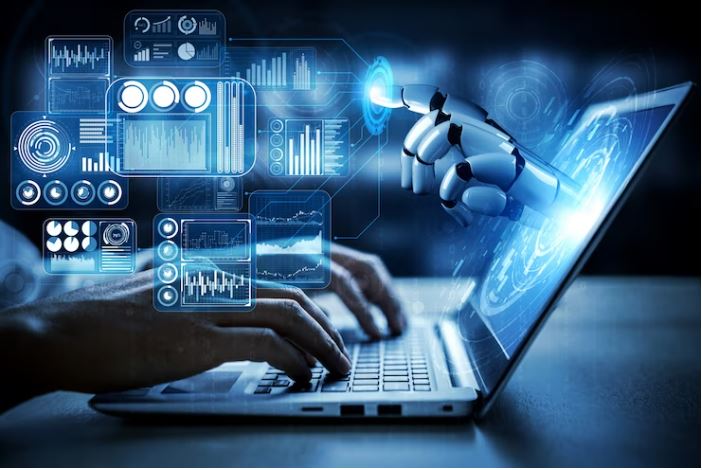
• Deep Learning:
Deep learning is capable to process and analyze data using interconnected nodes layers. This is a type of machine learning that is inspired by the structure and function of the human brain. They are used to perform amazing achievements like image and speech recognition. Natural language processing, speech identification, image identification, and other applications have all shown it to be small successful.
• Natural Language Processing (NLP):
The aim of NLP is to make it possible for computers devices to understand, translate and create human language. This is important requirement for applications like text summarization, analysis of emotions, Chabot’s and language translation.
• Narrow AI (Weak AI):
This is AI designed to perform a specific task, for example- voice assistants like Alexa which comes under this category. It is very smart at understanding and responding to a particular command, but they don’t have a big understanding of the world.
• General AI (Strong AI):
Imagine a particular computer system will imagine and reason like human. This is the concept of General AI, in which machines can do any brain work that a person can do. However, we are not reached yet there and General AI have remains more of a future dream.
• Computer Vision:
This field makes it easy for machines to calculate and process data that is visible from the outside organization. The study of medical images, object detection, autonomous cars, and facial recognition all make use of computer vision technologies.
• Robotics:
Robots powered by AI can work independently or in combination with people to complete tasks. Industries like business, healthcare, agriculture, and research all use these robotic features.
• Expert Systems:
These AI systems are created to copy the analytical skills of a human expert in a particular field.
• Autonomous Systems:
Drones and autonomous cars are two better examples of AI driven technologies that can work and make choices without the any person. They use AI tools including sensors, machine learning, computer vision and communicate with the environment.
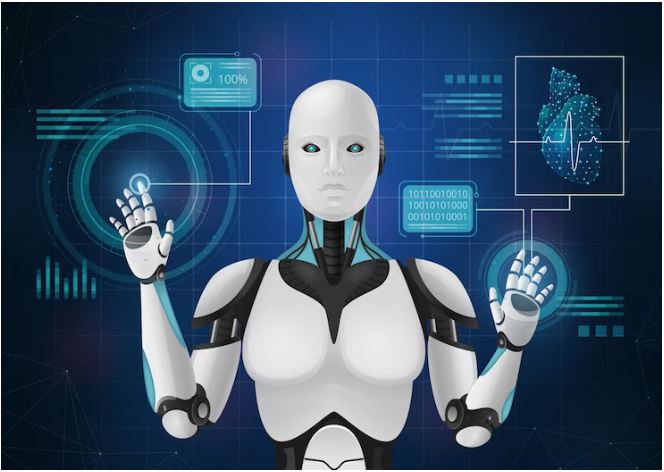
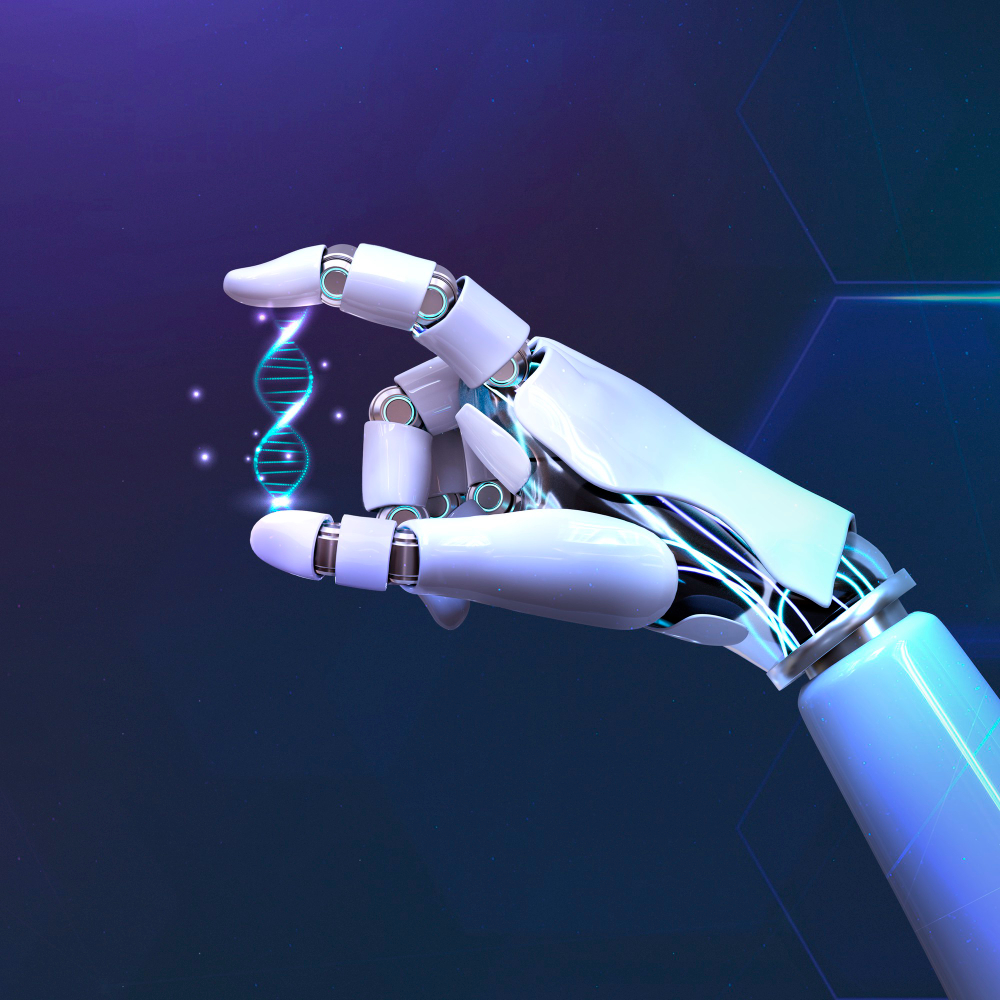
So the next time you ask your device a question and it answers back, you’ll know it’s a little bit of AI technology making the magic happen. By the changing of how we connect with the digital atmosphere, AI technology has changed many aspects of our life. This technical changes works as a virtual member, acting as a best friend connected inside our devices. AI adds a new types of service to our daily process by understanding our doubts and needs even before we inform them. On the surface, AI’s powers reach areas that were previously only within the purview of human knowledge. AI’s amazing capacity to learn from and respond to large datasets is at its core.
The Impact of AI:
• Efficiency:
AI works on those tasks that would take humans take much more time to complete and due to this increases productivity across industries.
• Innovation:
AI technology permit us to resolve critical problems and create new technologies that we could never have imagined.
• Challenges:
The development of AI comes with it moral and social difficulties, such as employment loss due to automation and privacy and disadvantage considerations in AI systems.
The Future of AI:
- AI learns through information rather than rewards, much like training a pet. When AI will identify the items in pictures and videos, it inspires our social media connections and improves how we interact with images and videos. It is clear that AI important effect on social platform, company jobs and privacy. To use AI as a tool that developed our life style while maintaining security and technology values, we must have work with each other.
- The technical teams are working continuously to build rules that use AI ability to do good in labs all around the world.
- When AI is developing day by day, it becomes more valuable for us to act as guard of its potential in order to ensure that it is a force for good, maintaining our values, and moving us closer to a time when AI and humans.
- The main target of AI is that- creation, application of AI systems and techniques that allow machines to duplicate human mental tasks, such as reasoning, learning, problem-solving, and decision-making.

